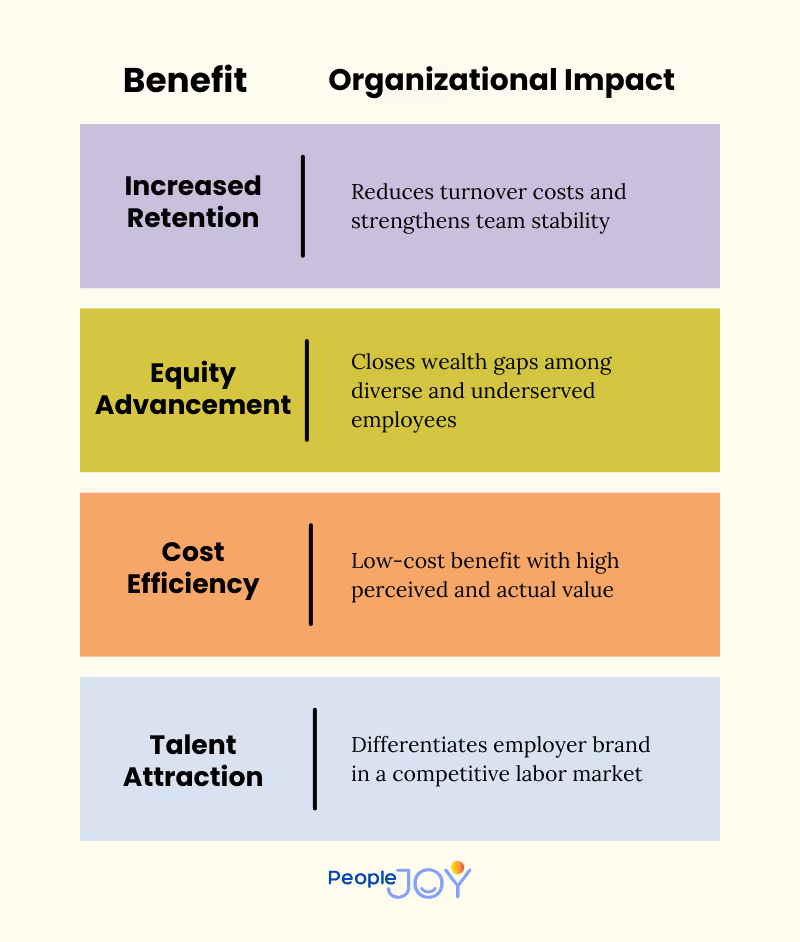In the healthcare sector, many organizations are working to align their financial, workforce, and equity goals. Yet one of the most persistent — and often invisible — challenges facing healthcare systems is the financial stress disproportionately affecting underrepresented staff. Student loan debt sits at the center of this issue and presents both a problem and an opportunity.
Forward-looking employers are discovering that integrating student loan forgiveness programs into their financial wellness strategies doesn’t just support employees — it also advances Diversity, Equity, and Inclusion (DEI) in measurable, mission-aligned ways.
Financial Equity Is a DEI Issue
While DEI strategies have traditionally focused on representation, hiring equity, and workplace culture, economic inclusion is often overlooked. Financial stress stemming from student debt is not evenly distributed across the workforce. Consider the following:
- Black and Hispanic healthcare professionals are more likely to carry higher student loan balances.
- First-generation college graduates often lack access to financial education or debt repayment resources.
- Entry-level roles such as medical assistants and support staff tend to experience high loan-to-income ratios with limited access to repayment support.
Without intentional benefit design, these inequities persist — and worsen over time. That’s why a growing number of healthcare employers are viewing financial wellness programs as a DEI imperative.
Why Student Loan Benefits Matter
Student loan repayment benefits and Public Service Loan Forgiveness (PSLF) support are two of the most powerful tools available to reduce financial stress and improve workforce equity. Hospitals and nonprofit systems offering these benefits report:
- Significant improvements in employee retention, especially among early-career clinicians and frontline workers.
- Increased utilization of student loan forgiveness programs, shortening the path to financial freedom for eligible staff.
- Higher engagement and morale among staff with high debt burdens.
These outcomes are not just qualitative. According to industry benchmarks, replacing a single nurse can cost up to $46,000. Reducing turnover by just a few percentage points through student loan assistance programs can lead to meaningful savings.
Financial Wellness Drives Workforce Stability
Adding a student loan repayment benefit or navigation support for PSLF can serve as both a retention tool and a cost-containment strategy. Benefits of this approach include:

When thoughtfully implemented, financial wellness benefits create a culture of support, reduce burnout, and send a clear signal that the organization invests in its people — not just their productivity.
Integrating Student Loan Benefits Into DEI Strategy
For organizations committed to reducing hospital staff turnover and supporting a diverse, engaged workforce, student loan assistance is a natural fit.
Key components of an effective strategy include:
- Access to PSLF support: Helping employees understand and qualify for loan forgiveness under public service programs.
- Employer student loan repayment contributions: Tax-free under Section 127, these are powerful tools for long-term loyalty.
- Financial counseling and education: Supporting informed decision-making on refinancing, repayment plans, and long-term goals.
These initiatives work best when they are simple to implement, easy to communicate, and aligned with organizational values.
Looking Ahead: Financial Wellness as a Strategic Imperative
Student loan forgiveness, when offered through a structured, compliant, and accessible program, serves as more than just a benefit — it becomes a lever for equity, retention, and organizational resilience.
As healthcare employers look to boost employee financial wellness, reduce costs, and live their mission, financially inclusive benefits will be a key part of the path forward.
Disclaimer
This content is for informational purposes only and does not constitute financial, tax, or legal advice. Employers and individuals should consult with their own advisors to determine the best strategies for their unique circumstances and to ensure compliance with applicable laws and regulations.
%20Financial%20Wellness%20as%20a%20DEI%20Strategy_%20Closing%20the%20Gap%20with%20Student%20Loan%20Benefits.avif)


%20Financial%20Wellness%20Programs%20That%20Actually%20Improve%20Teacher.avif)


